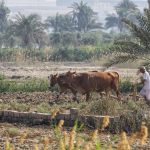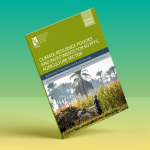This paper analyzes the implications of the Russian-Ukraine crisis on global and regional food security. We start with a global vulnerability analysis to identify most vulnerable regions and countries. The Middle East and North Africa (MENA) region is particularly vulnerable to trade shocks because of its high food import dependence
The Russia-Ukraine Crisis Poses a Serious Food Security Threat for Egypt
Russia's invasion of Ukraine has imperiled global food security—creating suffering within Ukraine and displacing millions, while disrupting agricultural production and trade from one of the world's major exporting regions.
NEW PUBLICATION: COVID-19 and Global Food Security: Two Years Later
Two years after the onset of the COVID-19 pandemic, the health, economic, and social disruptions caused by this global crisis continue to evolve. The impacts of the pandemic are likely to endure for years to come, with poor, marginalized, and vulnerable groups the most affected.
How will Russia’s invasion of Ukraine affect global food security?
BY JOSEPH GLAUBER AND DAVID LABORDE The unfolding crisis in Ukraine has roiled commodity markets and threatens global food security. Ongoing fallout from the COVID-19 pandemic and other factors have already driven up food prices. Poor harvests in South America, strong global demand, and supply chain issues have reduced grain and oilseed inventories and driven prices […]
NEW PUBLICATION: Climate-Resilience Policies and Investments for Egypt’s Agriculture Sector
The importance of a resilient agriculture sector in providing food security, livelihoods, and household income was highlighted in many countries by the recent pandemic, as was the capacity of the sector to cushion the negative impacts of the subsequent economic slowdown
- « Previous Page
- 1
- 2
- 3
- 4
- 5
- …
- 20
- Next Page »





